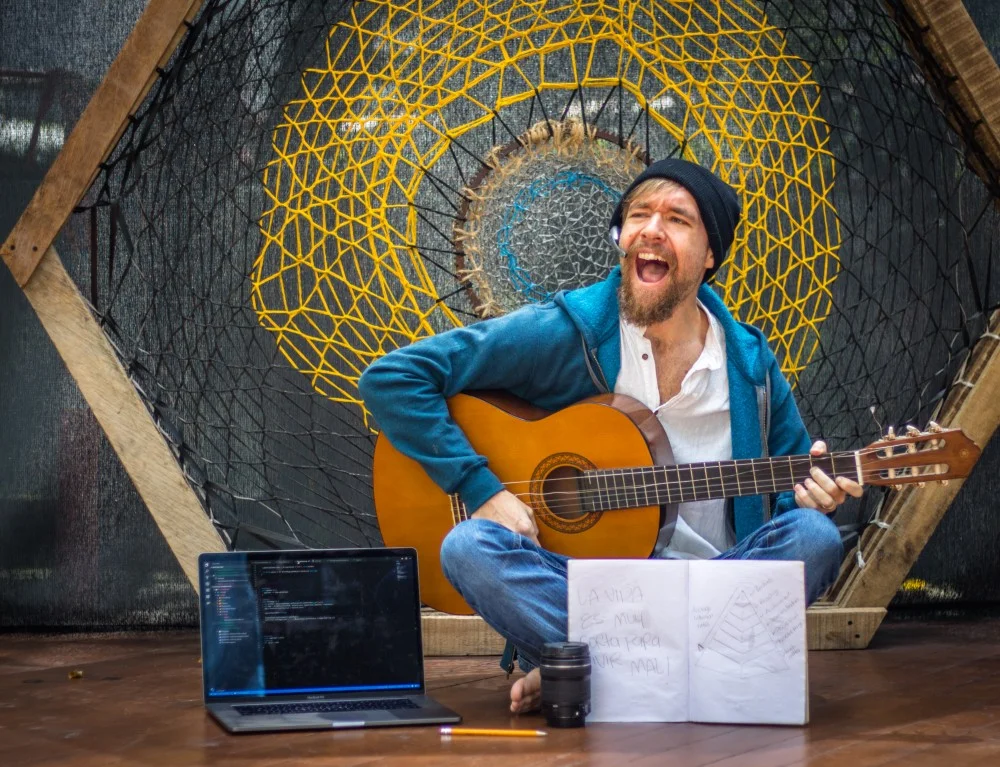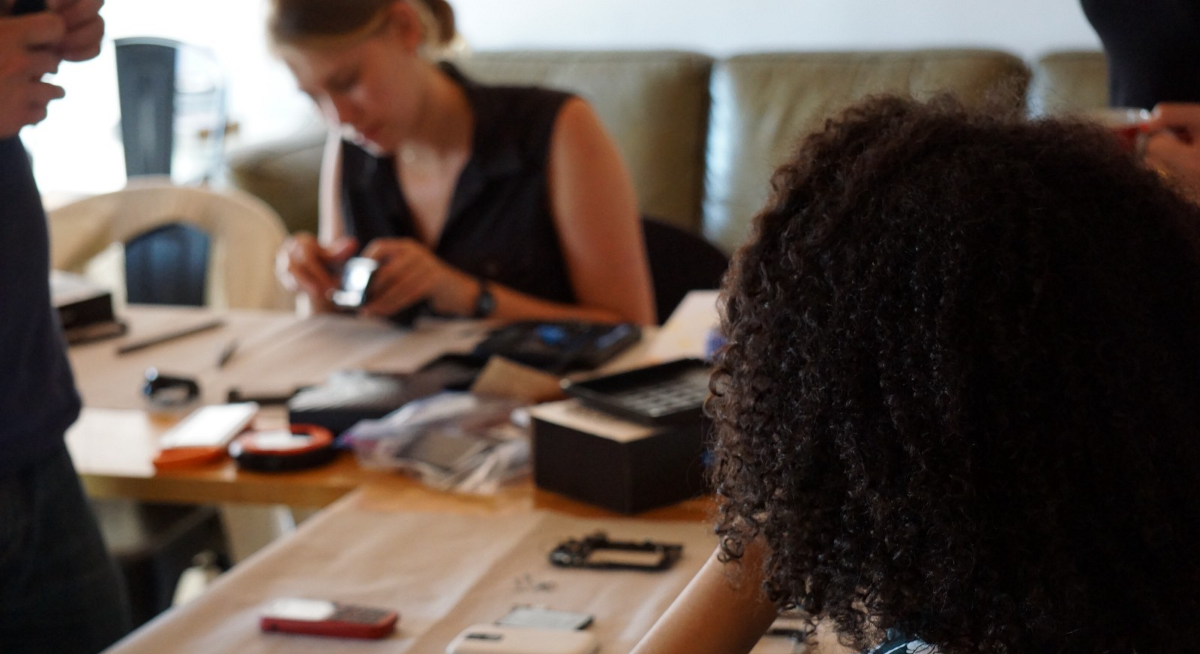With a good system in place, learning new skills is not as hard as it seems. Learning varied skills will, in the near future, be the only way to thrive. People who start now will not only future-proof themselves, but also have the upper hand.
Can We Truly Make Education Less Painful?
Learn Any Skill: The Ultimate Step by Step Guide
Learning Is Not Just For School Kids
Learn and Grow Rich — 7 Skills of Wealthy People
Will Education as We Know it Be Pointless 30 Years From Now? — Part 2
A Most-Undervalued Aspect of Education
I Reinvent Myself Every 6 Months and So Should You
The Un-Epiphany Leading Me to Thrive in 2018
8 Timeless Skills to Learn Now in Under 8 Hours to Change your Life Forever
Here Is How You Know It’s Time to Move On to Another Skill
How This Powerful Approach Made me a High Performing Polymath
Cover Photo by @federize on Unsplash
“The future belongs to those who learn more skills and combine them in creative ways.” ― Robert Greene, Mastery
Nine months ago, I was a software engineer, specializing in backend and video games. If you ask me today, I don’t have a clear answer for you.
I remember the day everything changed. I was in Cambodia, working from the AngkorHUB co-working space, slowly chipping away at my video game, working 14 hour days, 6–7 days a week.
Needless to say, it was exhausting.
Have you been in a similar situation?
Then one day I woke up at 5:30am as usual, thinking to myself: “How can I learn more — faster?”. I started reading and watching videos on learning new skills and came across a video debunking the myth that learning a skill takes 10,000 hours of practice. Mastering a skill may take that much, but simply learning to be proficient at something can take much less time. As low as 15 hours from my experience.
In the video, the speaker went in front of an audience with a guitar. The short version is that he claimed to have never played guitar until 45 days ago. I was baffled when he started playing. To me, it sounded professional. He was playing existing songs, but also improvising on the spot. He claimed it only took 15 hours of consistent practice over a period of 45 days.
I had to try for myself.
That same day I brainstormed skills I thought I’d never be able to learn. The list was too large, so doing one every 45 days would take me years to learn them all.
What skills do you think you simply cannot learn? Why not?
So here’s the approach I have used for nine months in a row, learning 27 new skills along the way:
Learn 3 New Skills Every Month
Granted, going from learning one skill in 45 days to learning three in 30 days is borderline insanity, but it’s not as hard as it seems.
Why 3 Skills
The first step for me was to cut down on the number of hours I was doing. 14 hours of the same type of work on the same day is not healthy. So I did some simple math: “how much time must I do in a day to reach 15 hours in 30 days?”.
The answer is 30 minutes.
Everyone can find 30 minutes in their day. I knew I could easily find 90 minutes in my day, so that’s how I went for three skills instead of one.
From my experience so far, I found that doing too much of the same type of activity during the day drains your brain power, but if you vary your activities and work different areas of your brain, you can stay energized longer. I’m no brain expert, but it’s as if the different sections of our brains had different energy levels.
How to Choose the Skills
Given the information above, and if you do want to become a polymath, you have to choose skills that work different areas of your brain. You don’t have to be an expert to figure this out.
Start with this well-known fact: the left side of the brain is more logical and the right side is more creative. Knowing that, you can choose a creative skill and a logical skill. On the creative side, think about music, art, writing, etc. In the logical side, think about math, science, programming, business planning, etc.
Once you’ve decided on a “branch”, be specific. If you’re thinking about music, are you thinking about an instrument or singing? If it’s an instrument, which one? If it’s the violin, what cords do you want to learn? If you’re thinking about singing, what type of songs? What techniques?
For my first month, I chose these three skills:
Logical: Classification using Machine Learning techniques;
Creative: Learning line-drawing + coloring using Photoshop; and
Language: Learn the past and future tenses of the most common Spanish verbs.
How to Practice Them
Now that you know which skills you want to learn, you have to plan the “what” and the “when”. For each skill, start by asking:
What steps do I have to take to learn that skill? What is the 20% effort required to learn 80% of the results (Pareto Principle)?
For the “when”, start by figuring out how much time you can afford to spend on skill learning, in blocks of 30 minutes. I’d suggest at least two. I do three on average.
The next step is figuring out when you can, on a daily basis, get blocks of 30 minutes of uninterrupted time. For most of us, that’s either early morning or late at night. I personally do it in the morning when I still have all my energy.
Now that you know the “what” and “when”, take your calendar out and put exactly what you need to do for each day. You may have to adjust along the way.
For example: learn how to read music 1/3 on Monday, 2/3 on Tuesday, and 3/3 on Wednesday. Also, write the intended quantifiable results. Wednesday I take this specific test and score 90%.
Every day, give yourself a score on how well you achieved your desired result, on a scale of your choice, with 0–10 recommended. At the end of the week, sum up your performance and ask yourself these questions:
What went right?
What went wrong?
How can I do better next week?
Then re-adjust accordingly. I’m usually pretty satisfied with 50+ out of 70. I never want to go lower than that. And it’s extremely motivating.
Conclusion
This approach turned me into a high performing polymath in a very short timeframe. What’s important to know is that the more skills you have, the easier it is to learn new ones, as proven by science. And I’ve certainly witnessed that.
Being a polymath also makes you a more interesting and relatable person. When you meet new people, you have more chance of having something in common with them.
Want to know if you’re high performing? Try this out (from Brendon Burchard).
Try this 3 new skills a month approach. Choose new skills at the end of every month and take a few hours to plan it out, then execute on each of them daily, reflecting on your performance along the way.
In no time, you’ll be a more skilled individual who can take on many more challenges.
You can do this!
Thanks for reading! :)
You Are, Or Will Become What You Learn
Cover Photo by @impatrickt on Unsplash
Quick Tips On Learning More Things Faster
If I had to choose a theme or a quick phrase to describe my last 8 months, it would have to be this: “Self-Education”.
In the past 5 months alone, I’ve released one book (with more coming up soon), one video game, one online store, a Saas company, and more.
But that’s only the result of me educating myself to learn a more diverse set of skills.
What’s the best way to apply things you just learned?
Put it in action of course!
Sometimes that means changing ways you do things, sometimes that means creating new things.
I created new things, and improved on things I was already doing.
If we were to break down the different skills I needed to learn to make all of the above possible, I would come up with a list like this:
Things I learned, am learning, or will be learning by doing all my projects.
These are some of the skills that, in the past 8 months, I’ve intentionallypracticed and learned.
As a list like that, it may seem a little broad. But most of these took over 8 hours of planning before even putting them in motion.
“Think things through, then follow through” — Eddie Rickenbacker
I may not have mastered any of these, but I’m at 80% “mastery” on a lot of them.
As I re-read that list for the nth time, I realized that I’ve become what I learned. Reading that list, I see a lot of “me” in there. I can do these things. I could write articles on any of these subjects.
So what I’m proposing you to do is go through that same exercise of listing the skills you recently learned, are learning, or will be learning in the near future.
Do you see that your skills portrait who you are, or will become?
That could be sad news to some of you, or good news to some of you.
The way I see it, it’s all good news.
Let me explain.
If the skills you listed are not pleasing to you, take it as a motivator to change that. My older brother once told me:
“You’ll never do anything in life” — Unnamed brother
Phew, that’s pretty harsh!
He told me that years ago because all he saw was this sad teenager playing video games all day on his couch. Here’s my list of skills back then — with exaggeration:
Mastering video games.
Needless to say, I wasn’t the most confident kid. But after hearing that, I had to prove him wrong.
And that’s what this exercise is about.
If you’re sad about your own results, prove yourself wrong!
Learning new skills, it turns out, is not even that hard.
Danny, are you crazy? Learning new skills is freaking hard!
Let me argue differently: mastering a new skill is freaking hard!
Being “sufficiently proficient” at something can be done in about 15 hours of constant practice.
I’ve tested that with my 3 new skills a month approach for over 8 months now. I’ve seen myself and others have similar results.
And here’s why “sufficiently proficient” matters:
“The future belongs to those who learn more skills and combine them in creative ways.” ― Robert Greene, Mastery
If you’re competing at master level for anything in life, you have to be a top 1% to become extremely successful. You have to be the best in the world!
Now combine 3–5 skills together in creative ways. How many other people in the world have the same skill set?
I hope you see that the subset of people you’re competing with is much lower, meaning more chances for you to be doing great.
Doesn’t that make you a little more remarkable?
Learning More Things Faster
I have a secret for you:
The best way I found to learn faster is to learn more
Probably not what you wanted to hear right? Yet it’s exactly how top people like Elon Musk, Warren Buffet, Bill Gates, and more learn faster. Because they already know so much.
Let me give you a very simple example.
Suppose you know a language deriving from latin. Let’s say French. Now compare learning Spanish or Italian, as opposed to English, or Chinese.
Spanish and Italian are much easier to learn coming from French, right?
And any polyglot will tell you, the more languages you know, the easier it is to learn new ones.
Everyone agrees, right?
If so, let me forgo the scientific explanation here, but trust me when I say that the same applies to other types of knowledge.
So here’s my suggestion to you:
Learn one or more “basic” skills this month (practice each for 30 minutes, consistently). Become “sufficiently proficient” in it. Aid yourself from my worksheet here: dannyforest.com.
Learn something “different enough” the next month.
Repeat step 2 for a few months. Maybe for 4–5 months.
Realize how much faster you assimilate concepts due to the diverse knowledge you’ve acquired for the past few months.
On step 4, when I stay much faster, I mean exponentially faster! Do that for 8 months like I have. I often surprise myself with how quickly I sometimes pick up concepts that other people find hard to grasp.
Start with Physics before Math and you’ll struggle as hell. Understand Math really well, then learn Physics. Much easier, right?
Convinced yet?
Trust me, it’s not as hard as you think it is. Planning and executing consistently are key.
Lack motivation?
Get yourself an accountability partner! Someone who will follow you in doing the same process. It doesn’t have to be the same skills.
Conclusion
In this article, I’ve shown you how to figure out what your current/near future skillset is and realize how it represents who you are or will become.
I showed you how you can use that as a motivation to stop procrastinating and start learning.
I also proved to you that skill learning is not that hard, and showed you examples of how to make it easier, and faster.
I hope you learned something!
Now it’s your turn.
Go ahead, start the month right and learn yourself a few new skills!
You can do this!
Work Less, Learn More, Earn More
Cover Photo of Author Reading “Good to Great” on a slow boat in Laos
Something I Wish I Could Tell My Younger Self
If there’s one thing I wish I could tell my younger self, it’s this:
Work Less, Learn More, Earn More
When I say learn more, I’m not talking about traditional school education. I went through that, like most people in North America. And I’m not denying its usefulness for general knowledge.
I’m also not talking about university, because I actually dropped out a few years in, mostly for the fact that I wasn’t learning the way I needed to learn.
But what I’m talking about is two things: 1. learning to learn, and 2. learning new skills.
Whenever I talk to people 5–10 years younger than I who’ve learned valuable skills I recently learned, I can’t help but think that I wish someone would have told me to invest in my self-development earlier.
People who have been useful to my self-education for the past year or so are, in the order I’ve been exposed to: Tai Lopez, Nicolas Cole, Zdravko Cvijeticand Michael Simmons.
Since I had dropped out of university about 9 years ago now, I focused on building my own startups, and growing in small startups. I learned so many incredible lessons working in all these high-stress, thriving environments.
But there’s one thing I failed to do: spend some time on my personal development.
Instead of working 12 hours per day every day, I wish I would have spent 2 of those hours on personal development. Learning to learn, storytelling, public speaking, writing, reading, drawing, playing an instrument, learning a new language, etc. Something. Anything.
Having specialized knowledge and working hard is overrated.
Somehow, even though when I was in the position of hiring people, I knew that I was hiring for “personality”, not “talent” or “mad skills”, I never thought to spend time working on mine.
Michael Simmons says that the future belongs to polymaths and I believe him. And you don’t become a polymath if you stop educating yourself after school, or when in the workforce. You become a polymath by continuously learning new skills, working different parts of your brain.
Back in September 2017, I had started to use 1 hour and 30 minutes of my morning time, right after waking up, to learn 3 new skills. 30 minutes for each skill, every morning, for a month. That’s 15 hours each.
Turns out that was probably the single best decision I could have taken for myself and my career.
Imagine.
I’ve learned about 21 new skills since then. I’ve released a book (other coming soon), a video game, an online store, started two businesses and now there’s no stopping me.
“The future belongs to those who learn more skills and combine them in creative ways.” ― Robert Greene, Mastery
Robert Greene and Michael Simmons are not wrong. At least not in my personal experience.
I certainly am not old now, but I could have “saved” 5–10 years of my life if I had known to work less and learn more. I would have earned more, faster if I had learned more, faster.
So whatever you do, never stop learning, ideally a diverse set of skills. You will be happier, earn more, and more importantly, be a better person, for yourself and your loved ones.
You can do this!
Thanks for reading! :)















